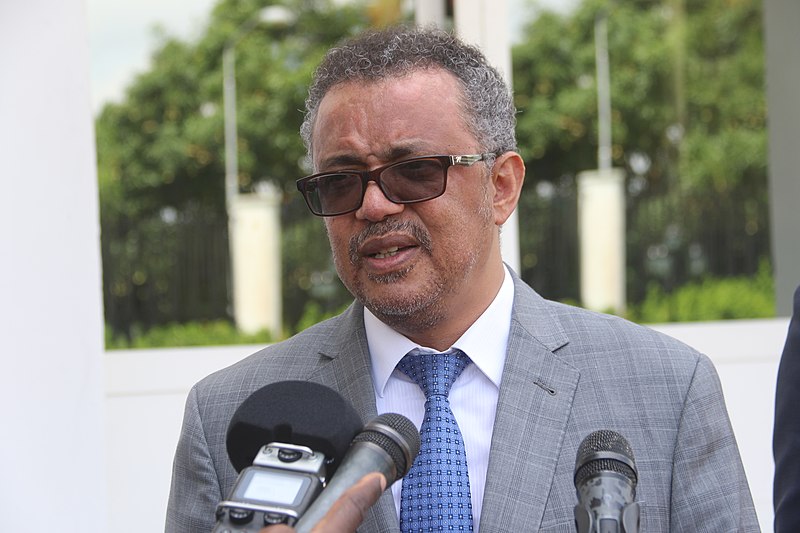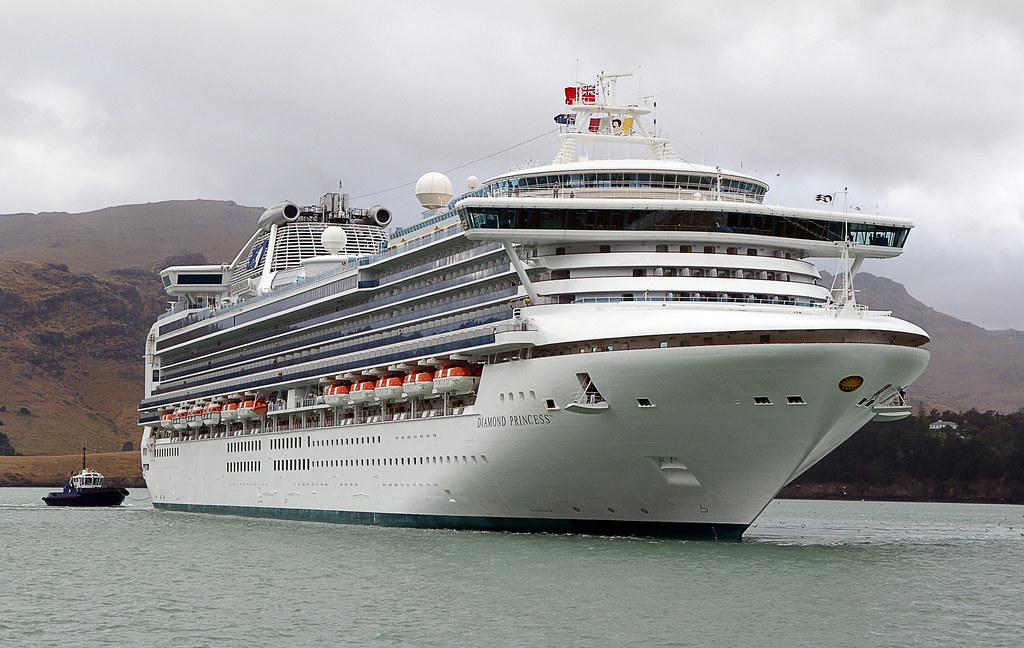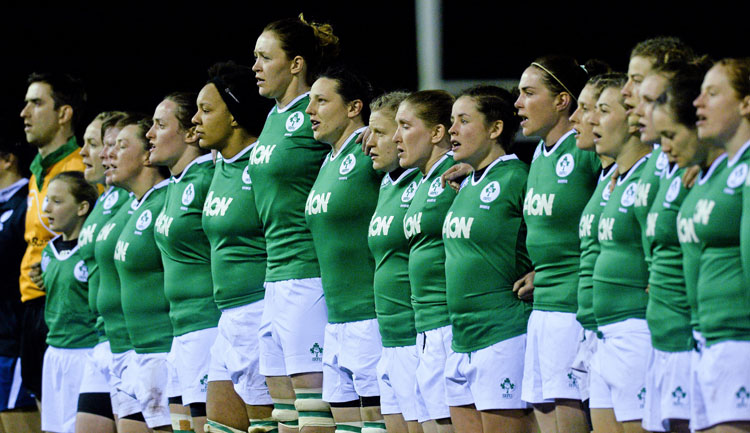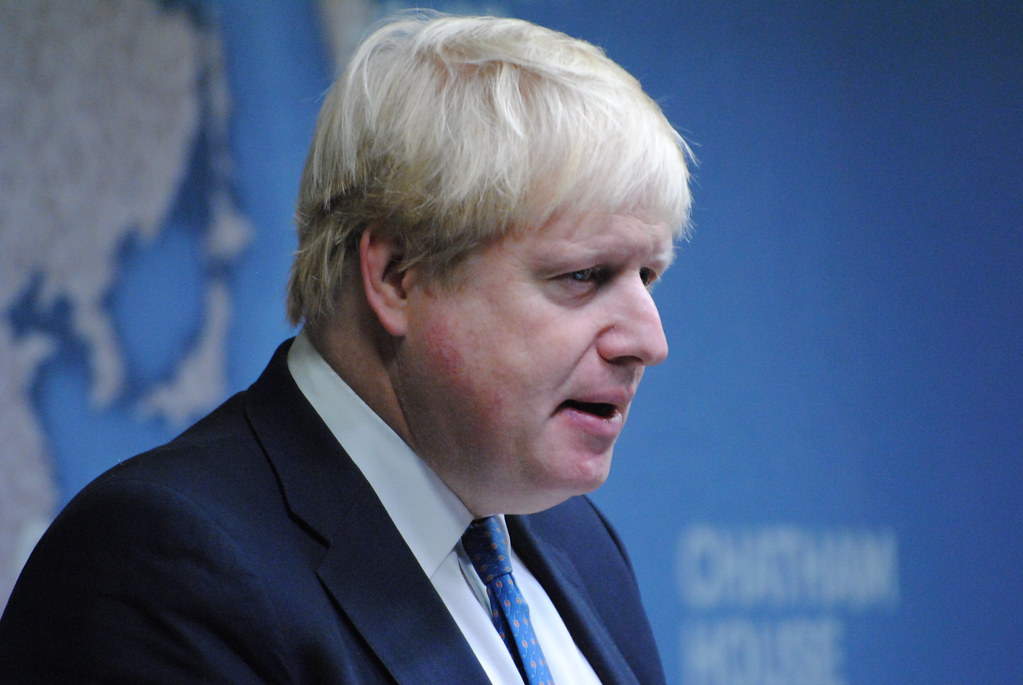Since the first cases emerged in December 2019, the novel coronavirus timeline reveals how it has spread from the Chinese city of Wuhan to become a global public health emergency.
The Covid-19 virus has already overtaken previous outbreaks such as SARS (severe acute respiratory syndrome) and MERS (Middle East respiratory syndrome) in terms of both confirmed cases and worldwide death toll.
In March 2020, the World Health Organisation (WHO) declared the situation a global pandemic – making it the most severe outbreak since HIV/AIDS.
We take a look at how the infection has spread across the world, and what international health authorities are doing to halt its progress.
Novel coronavirus timeline
12 December 2019: First coronavirus cases
The first people with symptoms of a new flu-like illness are identified in Wuhan, China — but little is known about the cause or the threat to public health. These cases aren’t disclosed for several weeks.
30 December 2019: Li Wenliang’s viral warning
Chinese doctor Li Wenliang warns colleagues about a new coronavirus strain via social media platform WeChat. He later becomes a whistleblower, with his warnings shared publicly.

31 December 2019: China alerts the WHO to pneumonia scare
Authorities in China alert the WHO (World Health Organisation) to several flu-like cases and an outbreak of pneumonia affecting dozens of patients in Wuhan.
1 January 2020: Cases traced back to seafood market
US health authority The Centers for Disease Control and Prevention traces the origin of the virus to a seafood market in Wuhan.
3 January 2020: First airport begins screening passengers
Changi Airport in Singapore puts passengers arriving from Wuhan through temperature screening to detect signs of illness.
7 January 2020: New virus identified
Health officials in China announce they have identified a new infection belonging to the same family of viruses as SARS, MERS and the common cold.
11 January 2020: First coronavirus death
The Chinese government announces the first novel coronavirus-related death — a 61-year-old man from Wuhan.
13 January 2020: First cases outside China
The WHO reports a case of the virus in Thailand — the first confirmed infection outside of China.
16 January 2020: Coronavirus spreads to Japan
The health ministry in Japan confirms its first case of the virus, found in a man who had recently visited Wuhan.
17 January 2020: Second death in China
Chinese officials report a second person in Wuhan has died after contracting the coronavirus.
Health authorities in the US say they will begin screening passengers arriving from Wuhan at airports.
20 January 2020: Person-to-person transmission confirmed
Authorities in China confirm the virus can spread from person to person.
The first case of the novel coronavirus is reported in South Korea.
More than 200 cases are reported in cities across China, and the country reports its third coronavirus death.
21 January 2020: More Asian countries begin airport screening
Several countries in Asia — including Japan, South Korea, Hong Kong and Singapore — begin screening passengers arriving from Wuhan, and set up measures to quarantine people who test positive for the coronavirus.
22 January 2020: Coronavirus reaches the US
A man in Washington becomes the first confirmed case of the virus in the US.
The WHO states that the majority of coronavirus cases have been in people aged 40 and above, and many of the recorded deaths have been in people with underlying conditions such as cardiovascular disease and diabetes.
Some virologists suggest the virus may have spread from wild bats to snakes, and then to humans — however, these claims have been disputed.
The number of confirmed cases in China increases to more than 500. The death toll rises to 17.

23 January 2020: Lockdown across Hubei
The WHO names the disease “2019-nCoV” and says it’s too early to declare the situation a global emergency — but adds it is undoubtedly a national public health crisis in China.
In an attempt to contain the virus, Chinese authorities impose a lockdown on the city of Wuhan and several other municipalities in the Hubei province. These travel restrictions are thought to impact about 57 million people.
US tech company Dimer introduces a germ-killing robot to disinfect airplanes and protect passengers from becoming infected with the coronavirus.
24 January 2020: First cases in Europe
France confirms the first cases of the coronavirus to reach Europe, with patients in Paris and Bordeaux.
China lists 26 deaths and more than 800 cases of the novel coronavirus.
The Chinese government announces it will begin building a 1000-bed temporary hospital in just six days to treat infected people in isolation.
25 January 2020: Australia confirms first infections
The first case of coronavirus in Australia is confirmed in a man from Wuhan who had travelled from the Chinese port city of Guangzhou to Melbourne several days earlier. Three further cases are reported in Sydney later the same day.
26 January 2020: China’s president issues warning
President Xi Jinping warns that the spread of the infection is accelerating, and the country is facing a “grave situation”.
27 January 2020: Chinese New Year extended
The Chinese government extends the country’s Lunar New Year holiday by three days to help contain the outbreak.
The number of confirmed cases in China rises to 2,700. This exceeds the 2,494 infected with MERS — predominantly in Saudi Arabia — during the 2012 outbreak. About half of these cases are in the Hubei province, which has Wuhan as its capital.
29 January 2020: Novel coronavirus cases overtake SARS
The number of coronavirus cases in China surpasses the 8,096 recorded during the SARS outbreak of 2002-2003.
30 January 2020: Hope of a coronavirus vaccine
US pharma giant Johnson & Johnson announces it will begin looking for a coronavirus vaccine.
The Ministry of Health and Family Welfare in India confirms the country’s first case of the virus in the state of Kerala.
Russia closes its border with China in the Far East, in an attempt to stop the infection spreading.
Footballing authorities in China say all domestic matches at all levels are postponed.
31 January 2020: WHO declares global emergency
WHO director-general Tedros Adhanom Ghebreyesus declares the coronavirus a global public health emergency, citing the growing number of cases outside of China.
US health secretary Alex Azar declares the virus a public health emergency. American citizens are urged not to travel to China.
The number of countries outside China with confirmed cases rises to 18.

2 February 2020: First death outside China
The first coronavirus-related death outside of China is confirmed in the Philippines.
More than 300 people have died from the virus — the vast majority in Hubei — and the number of people infected hits 14,000.
3 February 2020: GlaxoSmithKline joins race to find a vaccine
The Coalition for Epidemic Preparedness Innovations (CEPI) receives £20m ($26m) from the UK government to work on a coronavirus vaccine. UK pharma company GlaxoSmithKline announces it will collaborate with CEPI on the project.
4 February 2020: Thousands trapped on Japanese cruise ship
Some 3,700 passengers are quarantined on the Diamond Princess after 10 people test positive for the coronavirus aboard the Japanese cruise ship.
5 February 2020: British warned not to travel
UK foreign secretary Dominic Raab tells the British people to avoid “all but essential” travel to mainland China.
The number of confirmed cases in the US rises to 12.
The US Food and Drug Administration (FDA) approves the emergency use of a novel coronavirus diagnostic test.
7 February 2020: Whistleblower doctor dies
The virus reportedly kills Li Wenliang — a doctor “threatened” by the Chinese government for voicing concerns about the outbreak in the final days of 2019.
The coronavirus death toll hits 638, and more than 30,000 total cases are confirmed worldwide. The infection has reached 27 countries across the globe.
The number of infections aboard the Diamond Princess cruise ship rises to 61.
8 February 2020: Coronavirus deaths overtake SARS
The global death toll rises to more than 800, surpassing the 774 killed by SARS.
9 February 2020: Death toll overtakes MERS
With 910 deaths, the novel coronavirus surpasses the 858 killed by the MERS outbreak in 2012. The number of confirmed cases climbs to about 40,000.

10 February 2020: Number of cases doubles in the UK
Four more cases of the coronavirus are confirmed in the UK — bringing the total to eight. A GP surgery in the city of Brighton is shut down after a member of staff tests positive for the virus.
The UK government declares the outbreak as a “serious and imminent threat to public health”.
Public Health England (PHE) introduces a new coronavirus diagnostic test in the UK.
In China, millions are set to return to work following the end of the Lunar New Year holiday, but many schools and workplaces remain closed, and white-collar employees are told to work from home.
11 February 2020: Death toll passes 1,000
The number of worldwide deaths increases to more than 1,000 following the virus’ most deadly 24-hour period to date — with 100 people dying in a single day for the first time.
Two senior officials in Hubei are sacked over their role in combatting the spread of the disease.
A further 39 people – including one quarantine officer – aboard the Diamond Princess cruise ship contained in Yokohama Bay near Tokyo are confirmed to have the coronavirus, bringing the total to 174.
WHO director-general Tedros Adhanom Ghebreyesus announces the novel coronavirus should be called “Covid-19” – a name that doesn’t refer to a location, animal, individual or group of people.
12 February 2020: Chinese formula one grand prix cancelled
The Chinese Grand Prix in Shanghai, which was scheduled for 19 April, is postponed indefinitely due to the coronavirus outbreak.
13 February 2020: Coronavirus hits London
The first case of the virus is confirmed in London, England, bringing the number of cases in the UK to nine.
Changes to the way the coronavirus is diagnosed leads to an increase of nearly 15,000 cases in the Hubei province alone – the biggest jump in confirmed daily cases so far. This brings the number of people infected worldwide to almost 60,000.
In the deadliest 24-hour period yet, 242 new deaths are also reported, pushing the total in China to more than 1,350. This includes the first coronavirus-related death in Japan – the third in total outside of China.
The Mobile World Congress (MWC) – set to take place in late-February – is cancelled due to the coronavirus outbreak.
14 February 2020: Coronavirus reaches Africa
Egypt confirms its first novel coronavirus case, becoming the first country in Africa to be affected by the outbreak.
15 February 2020: First death in Europe
The first coronavirus-related death occurs in France. This is also the first death anywhere in Europe.
17 February 2020: More than 71,000 confirmed cases
The number of total cases rises to 71,000, and the coronavirus death toll hits 1,775.
Some 11,000 people are thought to have recovered from the virus – more than 1,200 over a 24-hour period. Researchers in China use a mathematical model to show the number of new infections declined between 13 and 15 February.
Taiwan becomes the third Asian country – and the fifth anywhere outside of mainland China – to report a death from the coronavirus infection.
18 February 2020: Russia bars entry to Chinese nationals
Russian Prime Minister Mikhail Mishustin announces plans to temporarily stop Chinese citizens entering Russia for tourism, personal reasons or work from 20 February.
For the first time, the number of recovered patients exceeds that of confirmed cases in China – 1,749 new cases were confirmed on 18 February, while 1,824 patients recovered.
19 February 2020: Passengers leave Japanese cruise ship
Passengers begin to disembark the Diamond Princess cruise ship near Tokyo following a controversial two-week quarantine aboard the liner. More than 540 are thought to have been infected on the ship.
The total death toll rises to more than 2,000, while the number of confirmed cases hits 75,000 – the vast majority of both are still in China.
Hong Kong announces its second coronavirus death since the start of the outbreak, becoming the first country outside of mainland China to report multiple deaths.

20 February 2020: First deaths in the Middle East
Iran reports two coronavirus-related deaths in the city of Qom, near Tehran. These are the first deaths caused by the infection anywhere in the Middle East.
Two Japanese passengers who were on the Diamond Princess cruise ship die from the novel coronavirus. Local media reports suggests both were in their 80s and living with underlying health conditions.
While the international death toll increases to more than 2,100, the rate of new infections continues to decline – with only some 430 confirmed cases over a 24-hour period, compared to nearly 1,500 coronavirus recoveries.
21 February 2020: Outbreak in South Korea
A surge in South Korea leads to the number of confirmed cases in the country passing 200.
22 February 2020: More deaths in Iran
Two more people die from the coronavirus in Iran, bringing the total to four.
Italy reports a spike in cases – as the total number infected increases from four to 20. The country also confirms its first coronavirus-related death near Venice.
The Covid-19 death toll across the world reaches 2,360. The number of confirmed cases increases to about 77,600 – more than 76,000 of these are in mainland China. The total number of recoveries from the virus surpasses 20,000.
23 February 2020: Coronavirus surges in parts of Europe and Asia
A surge in confirmed cases in Italy brings the total to 79 in the country.
Officials in the UK report four new cases, bringing the total number of infected to 13.
The number of cases in South Korea increases to more than 600. The country also reports three more deaths, bringing the total to five.
Four Indian passengers quarantined aboard the Diamond Princess cruise ship in Japan test positive. The total number of Indian people infected on the ship is now 12.
24 February 2020: Lockdown in Northern Italy
The Italian government puts quarantine restrictions on nearly 50,000 people in the Veneto and Lombardy regions in Northern Italy after the death toll rises to seven, and the number of confirmed cases increases to 229.
The US Centers for Disease Control and Prevention (CDC) states that there are 53 cases of Covid-19 in the country. The majority of these are people who recently departed the Diamond Princess cruise ship.
Afghanistan, Kuwait, Oman and Bahrain each confirm their first novel coronavirus cases.
The number of cases increases to more than 800 in South Korea. The country raises its infectious disease alert to the highest level.
The confirmed death toll in Iran increases to 12, including four additional deaths reported today – although the country’s deputy health minister Iraj Harirchi is forced to deny claims that the government has concealed the true severity of the coronavirus in the country.
25 February 2020: Schools close in Japan
The Japanese government asks schools to temporarily close – even if there are no confirmed cases on site.
The number of total cases in South Korea surges again to nearly 1,000. Two additional deaths are also confirmed, bringing the total to 10.
The total death toll rises to almost 2,700 across the world. The number of cases surpasses 80,000 worldwide, while the number of recoveries stands at more than 27,000.
The number of countries with confirmed infections is now 35.
26 February 2020: New coronavirus cases across Europe
Greece, Norway, Georgia, North Macedonia and Romania all confirm their first coronavirus cases.
The number of cases across Italy also increases to more than 400.
Death tolls climb further to six in Japan, 19 in Iran and 11 in South Korea.
Ireland and Italy’s RBS Six Nations rugby matches, which were set for 7 March, are postponed.

27 February 2020: Cases in Italy continue to spike
Italy’s health ministry reports new cases, bringing the total to 655. The death toll also increases to 17.
The coronavirus continues to spread throughout Europe as Northern Ireland, the Netherlands, San Marino, Denmark and Estonia confirm their first cases.
The US reports its first case suspected to be a result of ‘community spread’ – when the source of infection is not known. This is the 60th case in the country overall.
Saudi Arabia temporarily bans all religious visits to Mecca and Medina, the Islamic holy sites, in a bid to prevent the spread of coronavirus from other infected Arab countries.
Australian prime minister Scott Morrison says the virus will inevitably enter a global ‘pandemic phase’ soon, as the country extends its travel ban to China until 7 March.
28 February 2020: Number of infected countries passes 50
New Zealand, Lithuania, Belarus and Nigeria all report their first coronavirus cases, bringing the total number of countries with confirmed cases to 52.
Another 256 confirmed cases in South Korea brings its total number of infections to more than 2,000 – making it the most affected country outside of China.
The global death toll increases to more than 2,850, and the total number of cases stands at more than 83,000.
The number of coronavirus recoveries continues to grow exponentially, with several thousand people getting better every day. More than 36,500 recoveries have been confirmed worldwide.
29 February 2020: The US reports its first death
The US confirms its first coronavirus-related death – a Washington man in his 50s reported to have underlying health conditions. The country also increases its travel restrictions to South Korea, Iran and Italy in response.
The number of cases in Italy increases to more than 1,000, with 29 deaths confirmed.
1 March 2020: Global death toll nears 3,000
The death toll worldwide stands at 2,970, while the number of total cases rises to more than 86,000 across some 60 countries.
Scotland reports its first coronavirus case, bringing the total in the UK to 36.
Coronavirus cases in France increase to 130 – nine of these patients are thought to be in a serious condition.
2 March 2020: Coronavirus hospital closes in Wuhan
Wuhan, the epicentre of the coronavirus outbreak, shuts down one of the 16 hospitals built to treat infected people after discharging the final patients who have recovered.
The number of cases in Germany increases to more than 150 as the EU raises its coronavirus risk level from moderate to high.
The number of cases in Italy hits 1,835, with a total of 52 deaths also being confirmed.
UK prime minister Boris Johnson announces a new “battle plan” to deal with the coronavirus outbreak.
Iranian deputy health minister Alireza Raisi says the country has confirmed 523 additional cases, bringing the total to more than 1,500, and 12 more deaths, bringing the total to 66.
3 March 2020: More than 90,000 infections worldwide
The coronavirus death toll passes 3,100 and the number of confirmed cases rises to more than 90,000 – about 80,000 of these are in mainland China. However, new cases in the Hubei province, and in China in general, continue to decrease.
South Korea reports an additional 600 cases, taking the total to 4,812. Another six deaths increases the country’s death toll to 28.
Ukraine, Argentina, Chile and Senegal confirm their first coronavirus cases as the total number of infected countries rises to more than 70.
4 March 2020: Football matches in Italy to be held behind closed doors
It’s announced all Italian sport, including Serie A football games and Italy’s Six Nations rugby matches, will be played behind closed doors until 3 April over coronavirus fears.
International Olympic Committee president Thomas Bach says there is no talk of cancelling or postponing the 2020 Olympics in Tokyo at an executive board meeting.
5 March 2020: More European countries confirm cases
Poland, Hungary and Gibraltar confirm their first coronavirus infections, bringing the total number of countries with cases to more than 80.
A Champions League fixture between Atalanta and Valencia on 10 March is set to become the first continental football match in Europe to be played behind closed doors over coronavirus fears. Several other Champions League and Europa League games follow shortly after.
No Time To Die, the latest film in the James Bond franchise, is delayed by seven months until November 2020 over health concerns.

6 March 2020: Deaths in the UK and Switzerland
England’s chief medical officer Chris Whitty confirms the first coronavirus-related death in the UK – an elderly man with underlying health conditions. The total number of cases in the UK reaches 116.
A 74-year-old woman becomes the first person to die from the virus in Switzerland.
The number of cases in the US increases to 233 – including 12 deaths.
A total of 90 countries across the world have now been infected. The number of confirmed cases also nears 100,000, with 3,384 deaths and more than 55,000 recoveries.
7 March 2020: ‘Quarantine hotel’ collapses in China
Nearly 70 people are trapped in a collapsed hotel that was being used to quarantine coronavirus patients in the city of Quanzhou, China. It is later announced that 10 people have died.
8 March 2020: Nearly 16 million Italians in lockdown
Northern areas of Italy are put into virtual lockdown – with all museums, gyms, cultural centres, ski resorts and swimming pools in several regions, including Milan and Lombardy, shutting down. The lockdown affects nearly 16 million people in total.
French president Emmanuel Macron says gatherings of more than 1,000 people will be banned in the country, as domestic cases rise to more than 1,100.
Formula One governing bodies announce the Bahrain Grand Prix – set to take place later in March – will be held behind closed doors.
9 March 2020: Lockdown extends to all of Italy
Italian Prime Minister Giuseppe Conte announces the lockdown in northern Italy will extend to the entire country as authorities announce confirmed cases have increased to more than 9,000, and the death toll has risen to 463.
Confirmed coronavirus cases in the US stand at more than 700, and the death toll increases to 26.
Madonna joins the growing list of global musicians, which also includes Miley Cyrus, Mariah Carey, Slipknot, Green Day and Stormzy, to cancel gigs due to the outbreak.
The Six Nations rugby match between France and Ireland, scheduled for 14 March, is postponed indefinitely. The match between Italy and England, initially set for the same day, had already been postponed four days earlier.
Indian Wells – one of the most prestigious tennis tournaments on both the men’s and women’s circuits – is cancelled two days before its scheduled start date.
10 March 2020: Chinese president visits Wuhan
Chinese President Xi Jinping visits Wuhan – the epicentre of the outbreak – for the first time in order to meet health professionals who treated coronavirus patients. Cities in the Hubei province also announce plans to allow people to return to work.
Spain closes schools in some parts of the country and stops all flights arriving from Italy to avoid a similar outbreak. Total cases in Spain stand at 1,695 with 35 deaths.
Football bodies announce matches in the top two divisions in both Spain and France will be played behind closed doors for at least two weeks, while the Italian football federation says the Serie A season may not be able to finish because of the outbreak.
California music festival Coachella is postponed until October 2020 over coronavirus fears – although there is talk of cancelling the event completely.
The St Patrick’s Day parade, set to take place on 17 March in Ireland, is cancelled.
11 March 2020: WHO declares coronavirus pandemic
The WHO declares the coronavirus outbreak a global pandemic due to “alarming levels of spread and severity”, making it the first ever coronavirus-related pandemic.
The UK reports its sixth death – a man in his 80s with other health issues. The total number of confirmed cases in the UK stands at 373.
In announcing his economic budget, head of the UK treasury Rishi Sunak pledges £12bn ($15.1bn) to tackle the coronavirus outbreak – including £5bn ($6.3bn) for the NHS.
Italy tightens its nationwide lockdown to include shutting bars, hairdressers and restaurants as the number of cases rises to more than 12,000. A death toll of 827 also means the mortality rate in the country is more than 6%.
Organisers announce E3 – one of the biggest gaming events in the world – is cancelled. It was set to take place in June 2020 in Los Angeles.
The New York International Auto Show, which was set to take place in April and often hosts more than one million attendees, is postponed to August 2020 over coronavirus fears.
12 March 2020: Global infections hit 125,000
Coronavirus cases across the world increase to 126,000, with more than 4,600 deaths and 68,200 recoveries confirmed, and 110 countries reporting infections.
As the number of new cases in China falls to the lowest point since the start of the outbreak, the country’s national health commission says it has passed the peak of the epidemic. Renowned Chinese epidemiologist Zhong Nanshan says he expects the global coronavirus pandemic to be over by June 2020.
US president Donald Trump restricts travel from all 26 European countries in the Schengen area for 30 days. This does not include the UK, Ireland and Croatia.
Oscar-winning actor Tom Hanks and his wife Rita Wilson test positive for the coronavirus in Australia while the Hollywood A-lister is working on his latest film.

All NBA basketball games are suspended until further notice in the US after a Utah Jazz player tests positive for the virus.
As the number of confirmed cases in the UK rises to more than 450, Prime Minister Boris Johnson chairs an emergency committee meeting to discuss moving from “containment” to the “delay phase”.
Ireland announces all schools, colleges and other public facilities will close. The government also clamps down on indoor gatherings of more than 100 people and outdoor gatherings of more than 500 people following the country’s first coronavirus-related death.
Philip Jansen, CEO of UK telecommunications giant BT, becomes one of the world’s first major business magnates to test positive for the coronavirus.
13 March 2020: All English football fixtures postponed
All elite-level football fixtures in the UK, most notably those in the Premier League, are put on hold until 3 April. All Champions League and Europea League football matches are also postponed.
All fixtures in the top two divisions of both French and German domestic football are suspended.
Scotland’s fixture with Wales becomes the last remaining Six Nations rugby match to be postponed until further notice.
Canadian prime minister Justin Trudeau’s wife tests positive for the coronavirus. Trudeau, who is said to be displaying no symptoms, is placed in isolation for 14 days.
Spain declares a “state of alarm” over the outbreak – a measure that allows the government to prohibit free movement, take over the production of food, and even impose rationing.
France announces it will close all nurseries, schools and universities from 16 March to fight the spread of the virus. President Emmanuel Macron also says public gatherings of more than 100 people are banned.
In South Korea, 177 patients are released from hospitals marking the first time the country has had more recoveries than infections in a single day since its outbreak. Total cases in South Korea stand at almost 8,000.
Chinese health officials report just eight new cases – the lowest number in a 24-hour period since early January.
14 March 2020: Europe declared new coronavirus epicentre
The WHO says Europe is the pandemic’s current epicentre, with the continent now reporting more cases and deaths compared to the remaining global regions other than China.
Australian prime minister Scott Morrison suspends all non-essential gatherings of more than 500 people – including sporting and cultural events – and advises citizens against all overseaes trips. The number of cases in the country stands at almost 200.
US president Donald Trump declares the coronavirus outbreak a national emergency giving the country access to $50bn in federal aid.
Denmark closes its borders to foreign travellers for one month after reporting its first coronavirus-related death.
15 March 2020: US extends travel ban
President Trump extends the travel ban on US citizens to the UK and Ireland.
With the number of domestic cases close to 1,400 – and the death toll reaching 34 – the UK government says people older than 70 should self-isolate for the next four months.
A serious shortage of ventilators for coronavirus patients in the UK leads the prime minister to call on non-medical manufacturers to help with production. The NHS reportedly needs as many as 20,000 extra machines.
16 March 2020: Increased social distancing in the UK
In the first of his daily coronavirus updates, UK prime minister Boris Johnson tells people to avoid all non-essential contact with others – meaning working from home where possible and avoiding social gatherings.
The number of coronavirus-related deaths in the UK increases from 34 to 55.
The historic men’s and women’s boat races between UK universities Oxford and Cambridge – scheduled for 29 March – are cancelled. The Grand National horseracing event in the UK, originally set for 4 April, is also called off due to the coronavirus pandemic.
New Zealand bans gatherings of 500 or more people, the German government advises against all non-essential international trips and Greece announces it will close all shops – except supermarkets, pharmacies and food delivery services – on 18 March.
UK actor Idris Elba announces he has tested positive for the coronavirus and will begin self-isolating.
17 March 2020: More than 150 countries infected
The coronavirus death toll increases to more than 7,100. The number of confirmed cases also surpasses 182,000 in 155 different countries.
Some 79,000 infected people have also recovered from the virus.
The WHO says all countries should boost their coronavirus testing programmes in an effort to slow the pandemic.
The first US clinical trial of a coronavirus vaccine candidate, Moderna’s mRNA-1273, begins.
Spain deploys more than 1,000 military troops across 14 of its cities to help with the partial lockdown imposed on 14 March. The country has reported nearly 9,900 cases and 340 deaths so far.
Continental football tournament Euro 2020, set to take place in June, is postponed until the following summer.
18 March 2020: Schools close in the UK
China reports just one new coronavirus case for the second consecutive day. The country’s number of confirmed infections stands at more than 81,000, with about 71,000 recoveries.
Prime Minister Boris Johnson announces all schools in the UK will close on 20 March.
Portugal declares a 15-day state of emergency to combat the coronavirus as the number of domestic cases nears 650, and Austrian chancellor Sebastian Kurz announces up to €38bn in government aid to secure jobs and help affected companies.
Glastonbury – the biggest annual music festival in the UK – is cancelled.
19 March 2020: No new cases in Hubei
For the first time since the beginning of the outbreak, Wuhan, and the Hubei province in general, reports no new coronavirus cases.
Israeli prime minister Benjamin Netanyahu tightens a nation-wide stay-at-home policy to control the coronavirus spread.
The Iranian health ministry reports the virus is claiming one life every ten minutes in the country, as its death toll increases to 1,284.
The World Bank has increases its support package for businesses and economies hit by the outbreak to $14bn.
Collaborating with the FDA, Swiss pharma giant Roche enters its anti-inflammatory Actemra drug – previously used to treat rheumatoid arthritis – into Phase III clinical trials involving coronavirus patients.
Governor for California Gavin Newsom says more than 60,000 homeless people in the state could contract the coronavirus over the next eight weeks. He also orders all of its 40 million residents to stay at home starting tonight.
The professional tennis tour is put on hold until 7 June – ruling out the entire clay court season.
20 March 2020: Global death toll hits 10,000
The global coronavirus death toll passes 10,000, and there are reportedly close to 250,000 confirmed cases.
The death toll in Italy increases to more than the figure in China – 3,400 compared to 3,250 – despite the former having about half the number of confirmed cases.
21 March 2020: Restrictions in New Zealand
New Zealand prime minister Jacinda Ardern places the country at two on a four-level coronavirus alert system, asks people to avoid non-essential travel and tells those aged above 70 to stay at home.
Lorenzo Sanz, former president of Spanish football team Real Madrid, dies at the age of 76 after testing positive for the coronavirus.
22 March 2020: Cases in New York skyrocket
The number of infections in the US state of New York increases to more than 15,000 – about 5% of global confirmed cases are now located in the region. This also accounts for more than half of the total cases across the whole country.
German chancellor Angela Merkel is placed in quarantine after a doctor who had recently given her a vaccine tests positive for the coronavirus.
23 March 2020: Lockdown in the UK
Prime Minister Boris Johnson announces all non-essential shops will close, public gatherings of more than two people will be banned, and nobody should leave their house except for essential travel, healthcare or basic necessities. The lockdown will last a minimum of three weeks.
India announces it will stop domestic flights and the majority of the country is placed under complete lockdown.
Confirmed deaths in Italy stop accelerating, as the reported daily number increases by the smallest amount since 19 March.
US musician Rihanna donates $5m to help fight the coronavirus outbreak. She joins the growing list of celebrities offering financial aid – which also includes Justin Timberlake, Jimmy Fallon, Lady Gaga, Ryan Reynolds, Ariana Grande, and Zlatan Ibrahimovic.
24 March 2020: Tokyo Olympics postponed for a year
The olympic games in Tokyo, set to take place in the summer of 2020, are postponed until 2021 over coronavirus fears.
India’s prime minister Narendra Modi advises all the country’s citizens to opt-in to a self-imposed lockdown in an attempt to slow the spread of the virus – potentially stopping 1.3 billion people leaving their homes for the next 21 days.

25 March 2020: Prince Charles tests positive for coronavirus
Prince Charles, son of Queen Elizabeth II, tests positive for the coronavirus but is reportedly in “good health” despite displaying mild symptoms.
The death toll in Spain increases to more than 4,000, overtaking China as the second-worst hit country. Italy has still experienced the most coronavirus-related deaths with about 8,000 in total.
26 March 2020: Half a million infections worldwide
The number of cases across the world passes 500,000, with more than 180 countries reporting infections and about 20,000 deaths.
American investment bank Goldman Sachs says it expects global real gross domestic product (GDP) to decrease by about 1% in 2020 – a sharper economic decline than the one felt after the 2008 financial crisis.
UK prime minister Boris Johnson orders all cafes, pubs, bars, theatres and leisure centres to close in an effort to protect public health.
27 March 2020: US overtakes China for confirmed cases
With 86,000 reported coronavirus cases, the US now has more infections than any other country – overtaking China.
UK prime minister Boris Johnson and health minister Matt Hancock test positive for the coronavirus.
30 March 2020: UN calls for $2.5tn emergency aid package
The United Nations calls for a $2.5tn emergency aid package to help developing countries cope with the outbreak, and urges richer countries to help emerging economies survive.
1 April 2020: Wimbledon cancelled
Wimbledon – one of the biggest tournaments in the tennis calendar – is cancelled as coronavirus cases continue rise in the UK. The competition had been set to begin in late June.
2 April 2020: Global infections surpass one million
As cases continue to soar in the US, and the UK joins Spain and Italy as the worst hit countries in Europe, global coronavirus cases increase to more than one million.
UK health secretary Matt Hancock calls on Premier League footballers across the country to take a pay cut in order to mitigate the economic impact of the coronavirus.
3 April 2020: 5G conspiracy theories gain publicity
Conspiracy theories that the coronavirus’ spread was caused by 5G technology begin to gain more news coverage – and are quickly branded as “dangerous nonsense” by UK politician Michael Gove.
6 April 2020: UK prime minister moved to intensive care
Prime Minister Boris Johnson is moved to an intensive care unit after his coronavirus symptoms worsen.
7 April 2020: Nearly 1.5 million coronavirus cases
Global coronavirus cases approach 1.5 million as the number of deaths also increases to more than 82,000. The death rate stands at just over 5%.
8 April 2020: Lockdown ends in Wuhan after more than two months
After 76 days, the lockdown in Wuhan, China, ends as people are allowed to leave and enter the city once more.
US company Novavax announces its leading coronavirus vaccine candidate, NVX-CoV2373, and plans to begin clinical trials involving human testing in mid-May.





